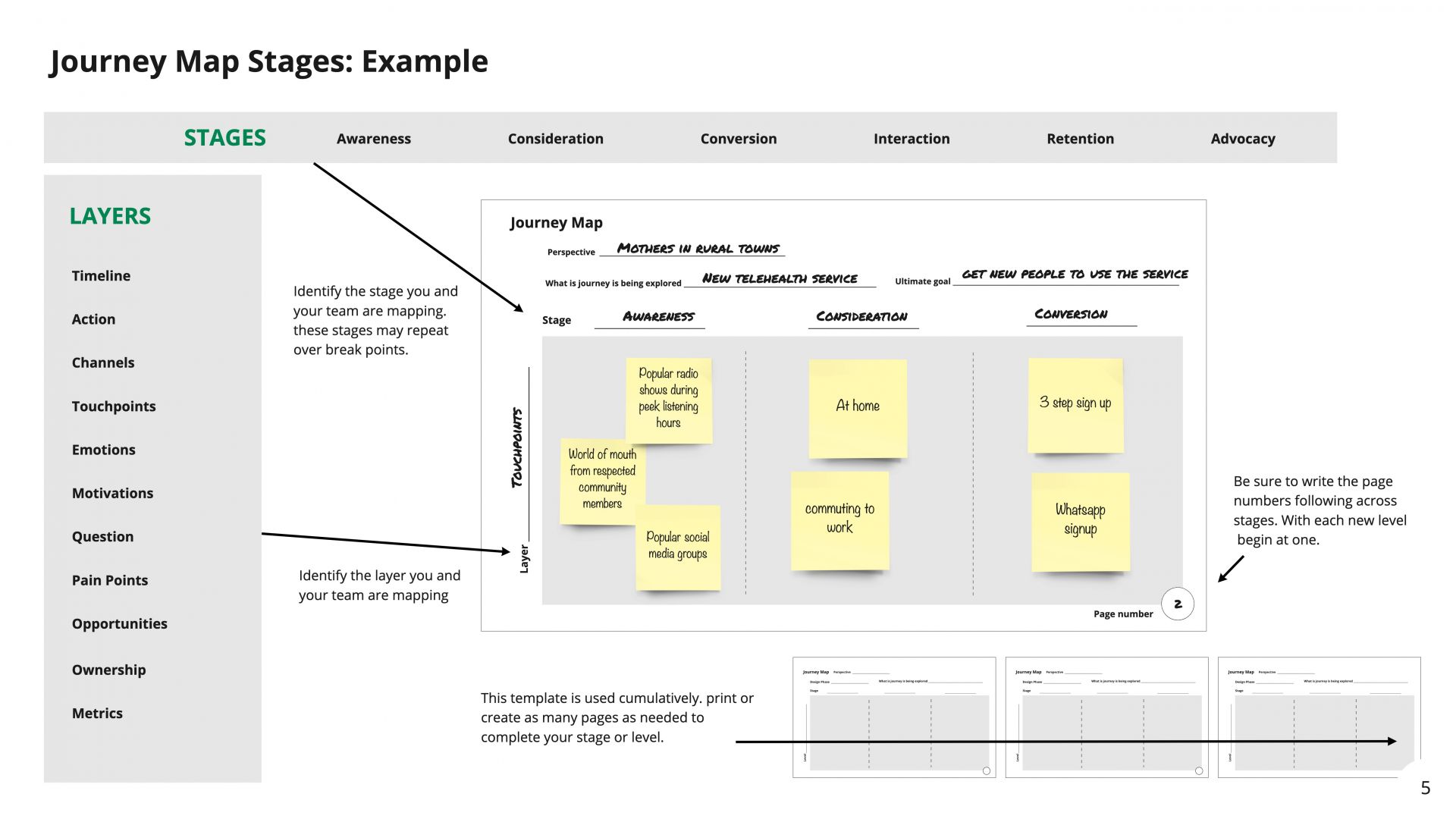Journey Mapping
Journey mapping is an easy, practical, and widely-used method to guide the design process. It has some elements from public health approaches that might already be familiar to you, such as the assessments of client flows and provider workflows in a healthcare facility.
The method serves as a magnifying glass, providing new viewpoints on familiar challenges that may have been overlooked earlier, such as the importance of taking into account patient's emotions when making healthcare-related decisions.
The method serves as a magnifying glass, providing new viewpoints on familiar challenges that may have been overlooked earlier, such as the importance of taking into account patient's emotions when making healthcare-related decisions.
What it's great for
A New Perspective on Known Challenges
The journey mapping tool is great:
- As a valuable starting point for building shared understanding, identifying key partners, and seeing how each stakeholder plays a role in achieving common goals.
- For enhancing collaboration by building critical common understanding and vocabulary for a selected problem. This helps stakeholders reflect and gain perspective as well as create shared goals and alignment for improvements.
What Do You Need?
-
Sticky notes
(in multiple colours) -
Pens and markers(in multiple colours)
Time Frame
Ongoing
Group Size
1 - 10
The Process of Building a Journey Map
Develop the Point of View
Identify key stakeholders and choose a challenge. Discuss and decide who is the primary service user and service provider whose journey you aim to look at. Write a short description of each to form a clear point of view.
Identify the Stages
Discuss and write down where in this service each of the six categories of stages take place. Stages highlight key moments before, during, and after a service journey.
Build the Layers
Layers act as lenses through which you can view specific stages in your journey. Work with your team to fill in key layers using the template provided.
Outcome of the Process
Journey maps are documents that highlight multi-levelled perspectives linked to a specific design challenge. The document can be used to guide design research from synthesis, ideation, and concept development to implementation across identified key service stages.




